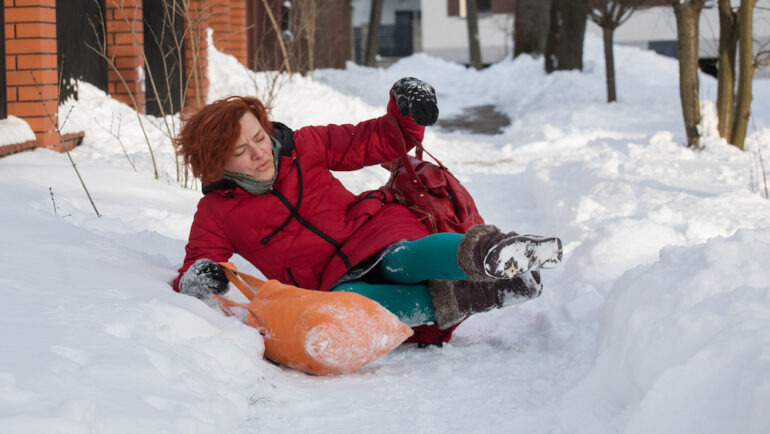When someone visiting your property gets injured, does your homeowners insurance cover their medical and other expenses? What if they sue you? What should you do if a person is injured on your property?
Accidents happen
When someone is injured on your property, the liability portion of your homeowner’s policy compensates the victim for all costs associated with the injury, such as medical expenses and loss of income from missed work. The policy will also cover damages for pain and suffering. The policy will cover your legal expenses if the injured person sues you. These costs, however, are covered only to the extent of the maximum liability coverage you choose. If your liability coverage is $250,000, for example, that is the maximum your policy will pay per incident.
In many cases, claims are settled below liability limits. However, if the victim’s losses exceed your policy limit, you are personally liable for the overage. For this reason, homeowners are wise to carry an additional umbrella policy that covers costs exceeding liability limits, typically up to $1 million.
What is not covered
In most states, to recover damages from you, a person injured on your property must show that you were somehow negligent, such as ignoring a hazard that could cause someone to fall. Your insurance protects you up to its limits in these cases. Some states, however, have “strict liability” laws whereby the victim does not have to prove negligence on your part to hold you liable. This is particularly true in cases of an animal bite. (Some insurance companies will not cover bite injuries caused by specific dog breeds, so review your policy.)
Trespassers onto your property may have a more challenging time winning liability claims, but you are not automatically exempt. In particular, children may wander onto your property to explore an “attractive nuisance” such as a swimming pool or trampoline. Homeowners should have fences with childproof latches around such items to prevent injuries.
Your liability coverage will not cover intentional acts that injure a visitor. If the victim can show that you acted with intent to injure, such as by assault, your policy will not cover the damages, and you will be personally liable.
Prevention is the best protection
Take a proactive role in preventing injury to guests on your property. Under a legal doctrine known as “premises liability,” you must keep your property clear of hazards and unsafe conditions that could result in injuries.
For example, keep ice and snow shoveled, tree limbs adequately trimmed, and toys, yard tools and other tripping hazards picked up. Fence your dog or keep it on a leash.
Talk to your agent about whether your liability limit is adequate, and consider adding an umbrella policy if it isn’t.
What to do if someone is injured on your property
- Stay calm and rational.
- If the injury is minor, supply first aid on the scene. If the person’s injuries are severe, call 911 and make the person as comfortable as possible until help arrives.
- If the injured person was a trespasser on your property, call law enforcement to document the event. This does not imply that the person was malicious, but a police report could prove crucial later.
- Express care and concern for the injured party, but mind your words. Be careful not to express guilt, such as by saying, “I’m sorry,” or inadvertently admitting that you could have prevented the accident.
- If a person sustains a minor injury or has no visible injury and waives off care, ask them, in the presence of a witness, if they are all right. That way, you’ll have someone to verify the waiver if needed later.
- Document the scene. Take pictures of the accident site and make notes of victim and witness accounts.
- If an object causing a fall remains and could hurt someone else, remove it.
- Notify your homeowners insurance agent and follow their instructions.
- Find an attorney who defends personal liability cases. Your insurance carrier may supply one as a matter of course.
- Do not talk to people about what happened. Things you tell others could be used against you later.
Related – Remember: Your Insurance Needs Change Over Time


